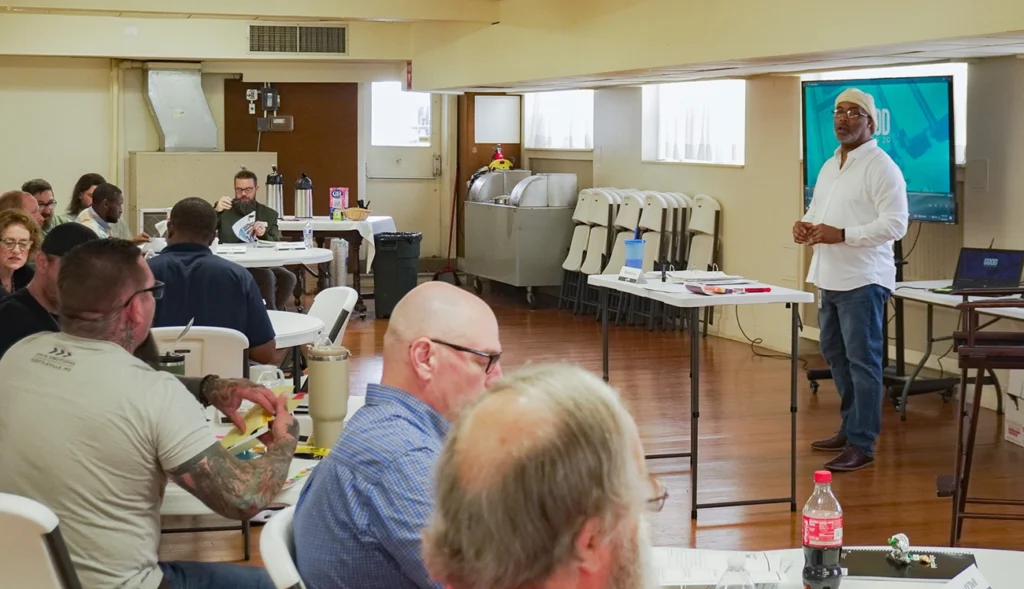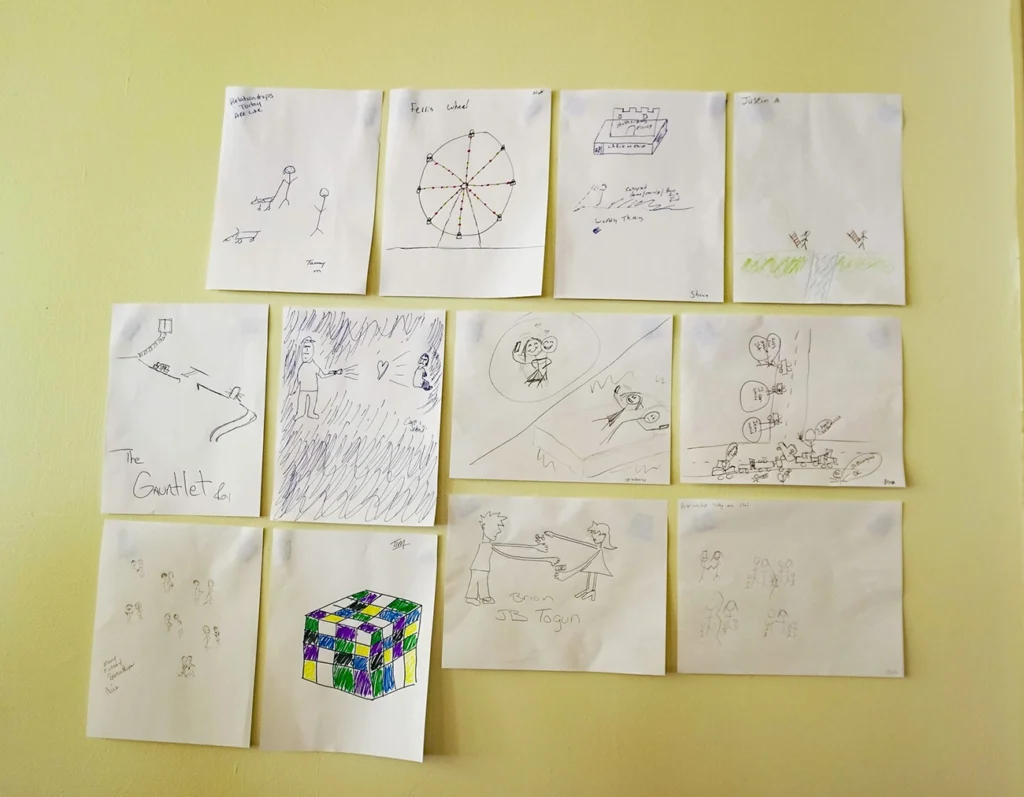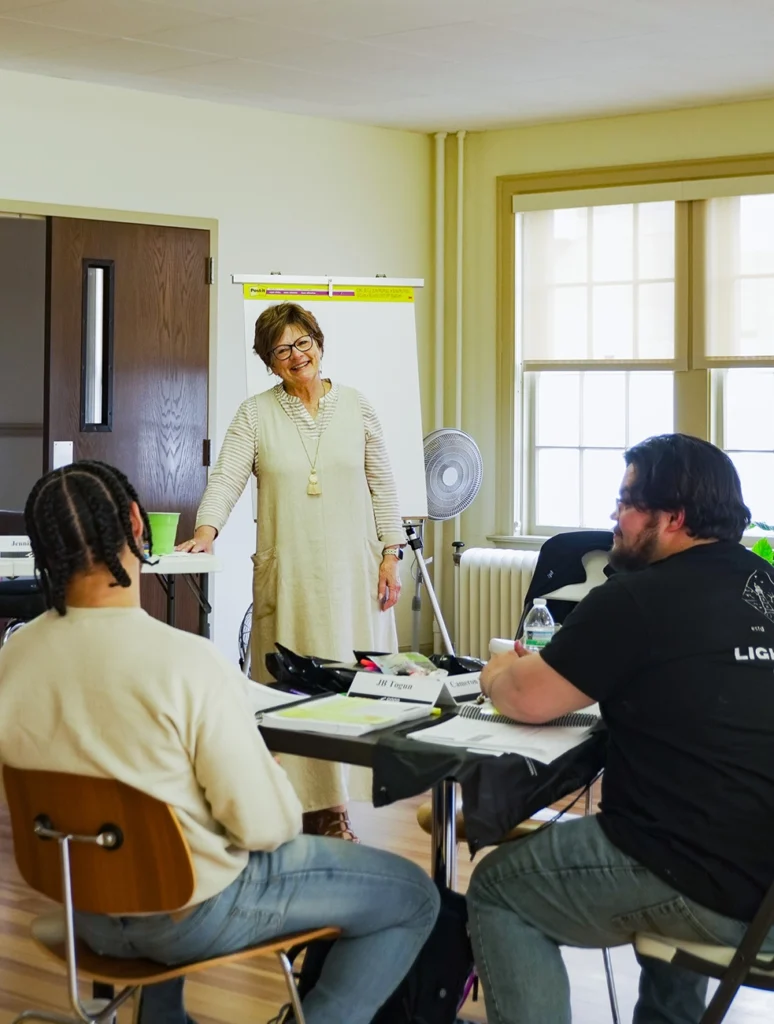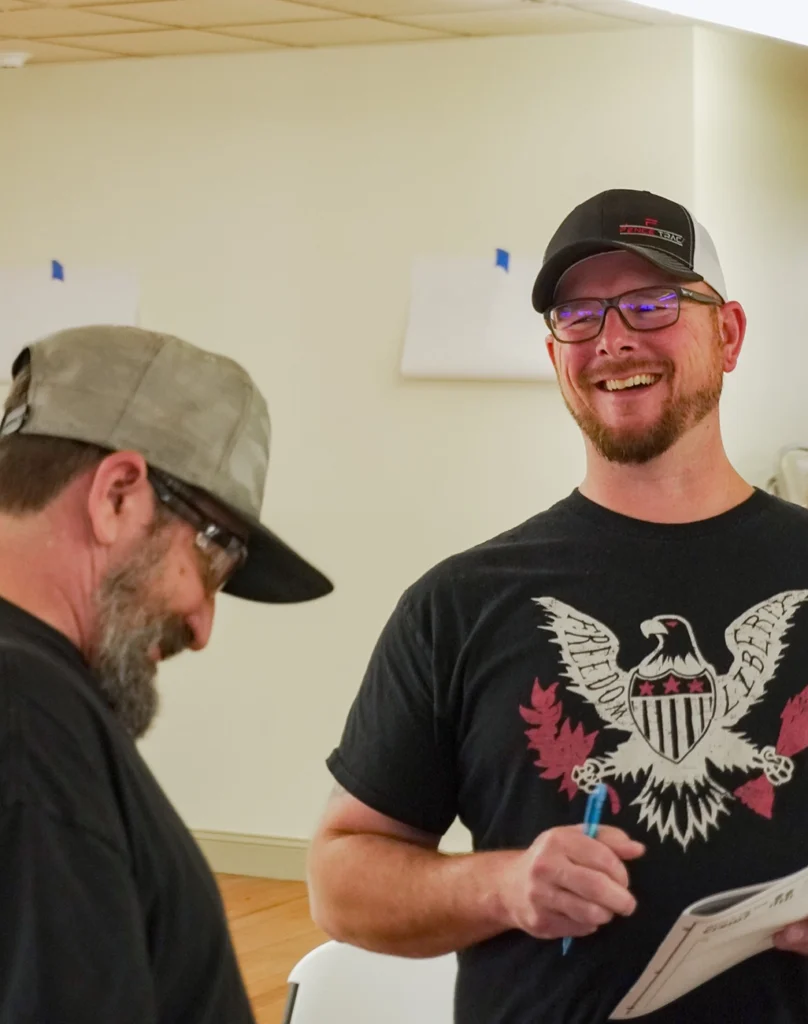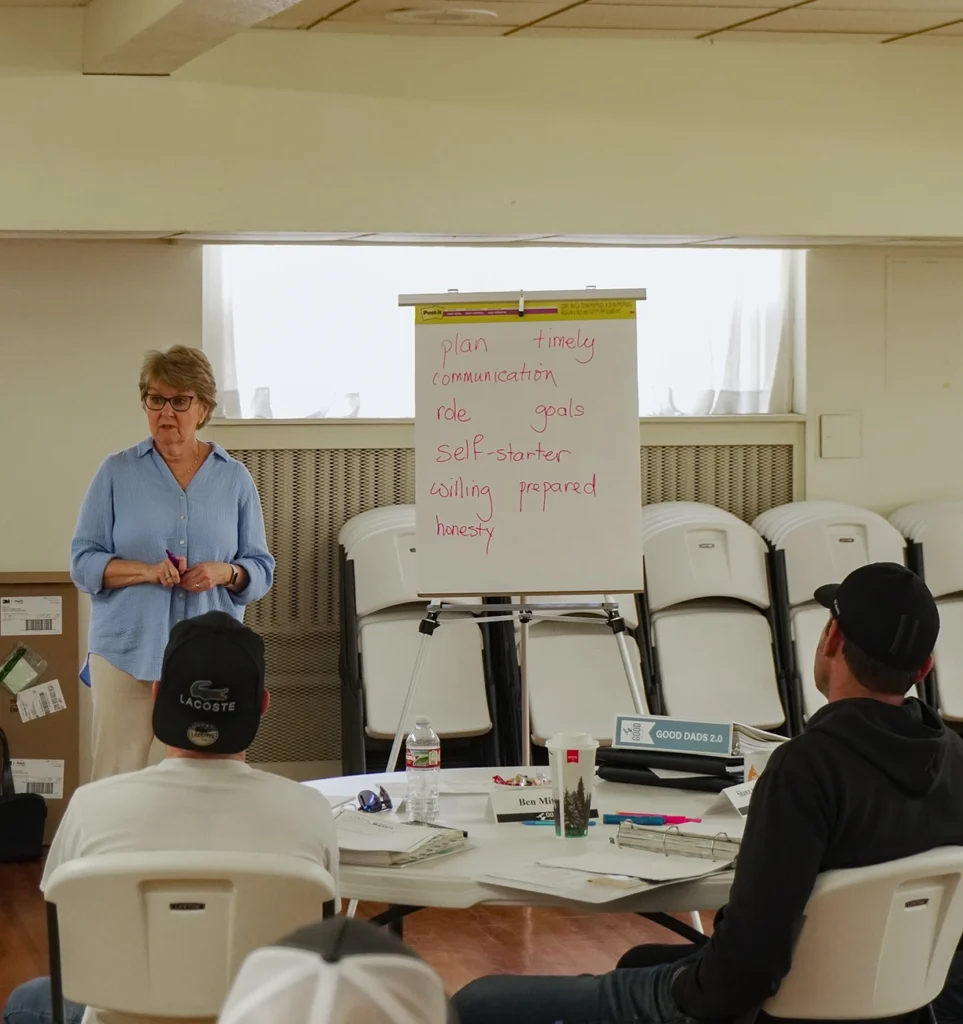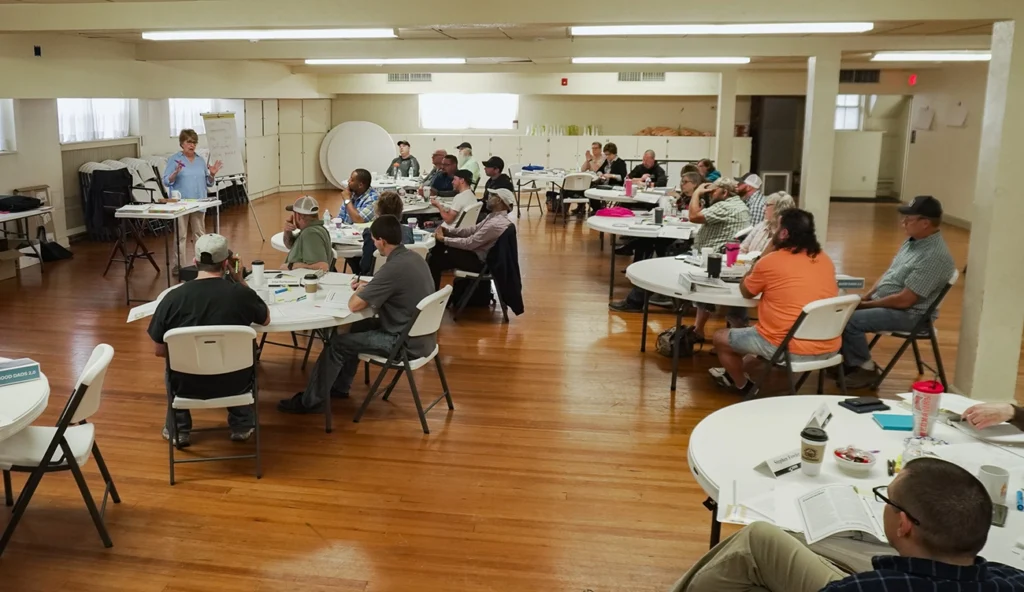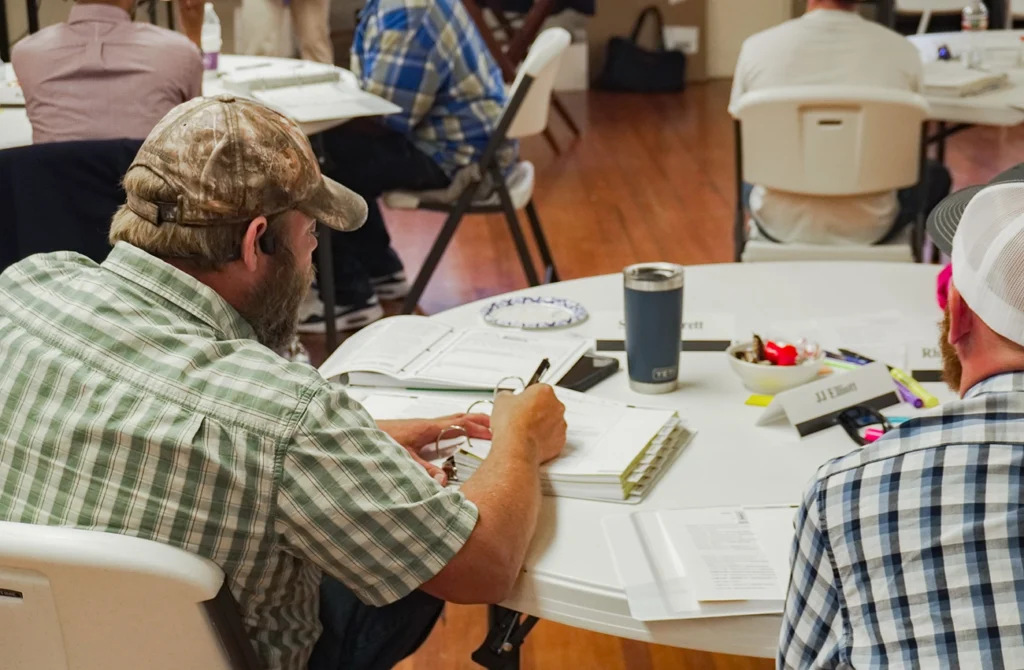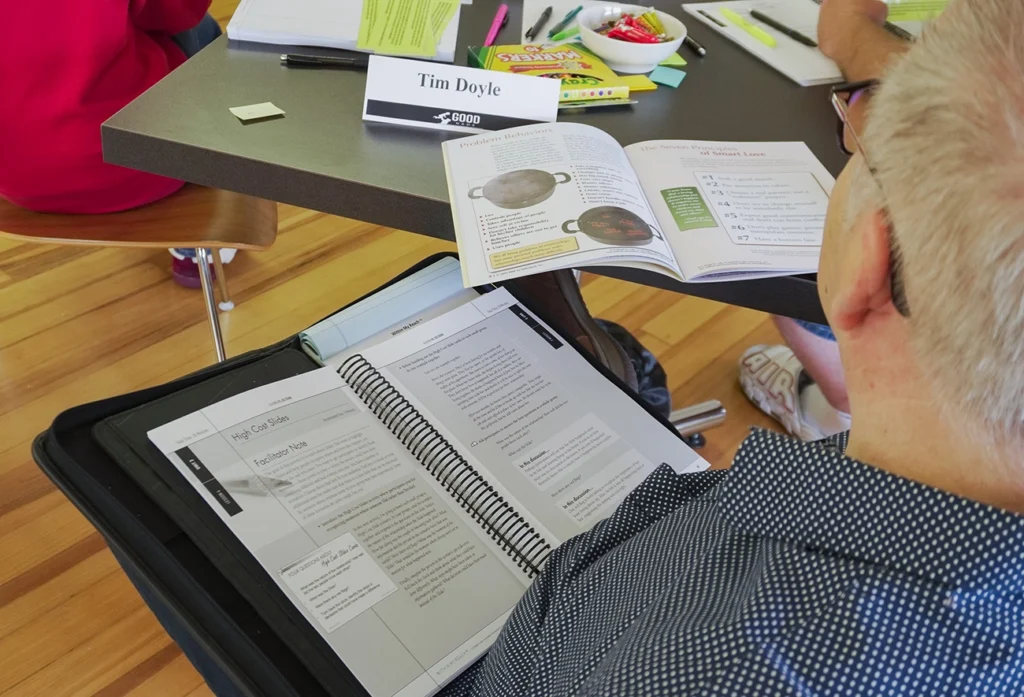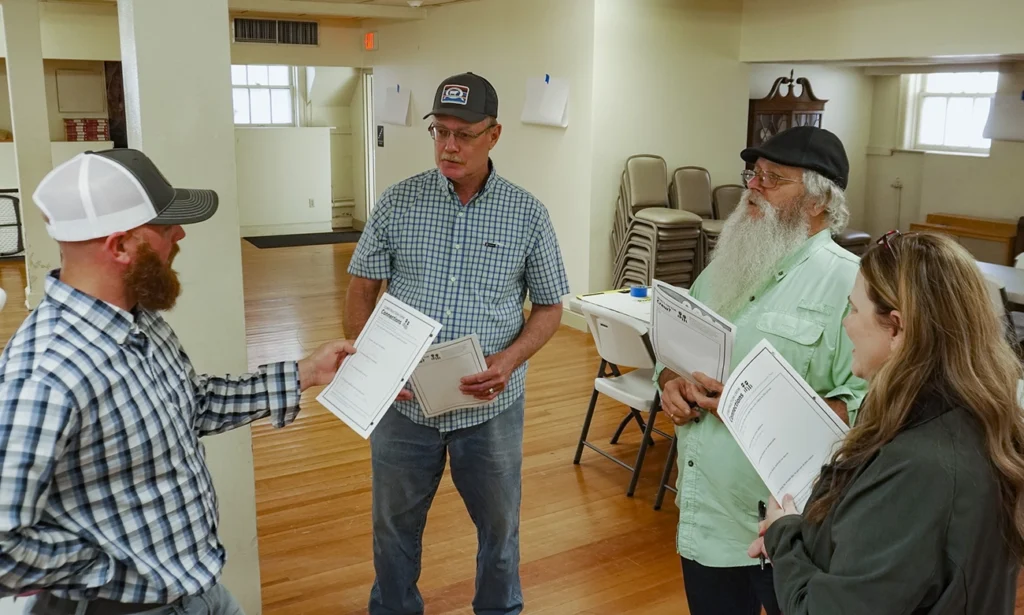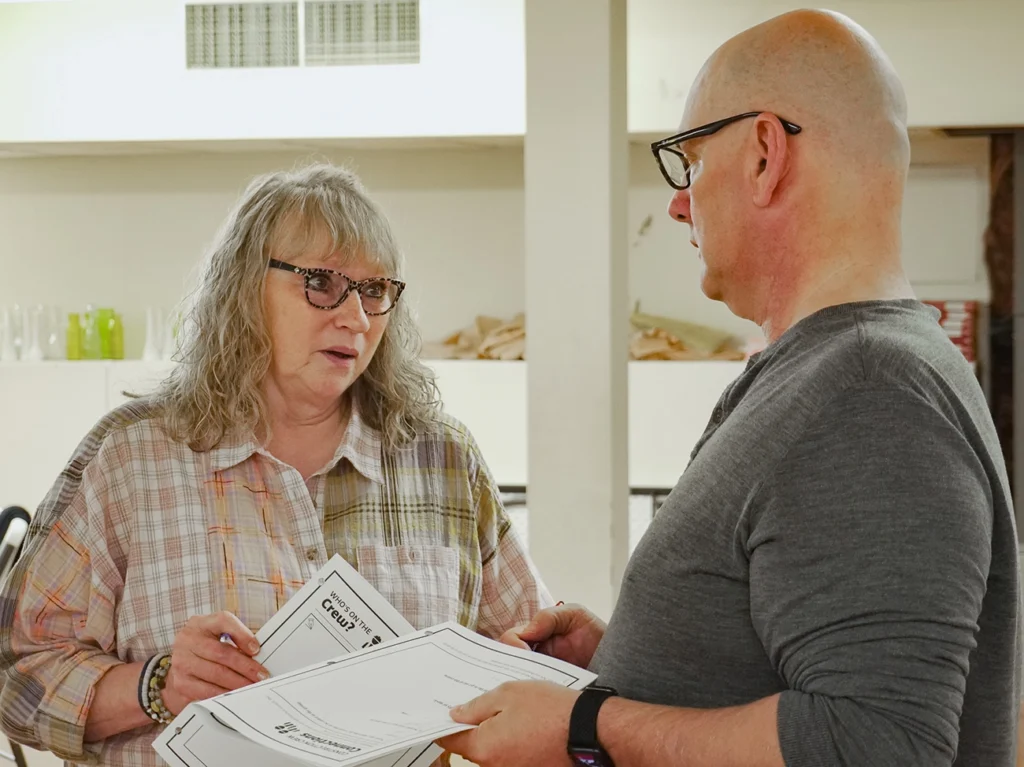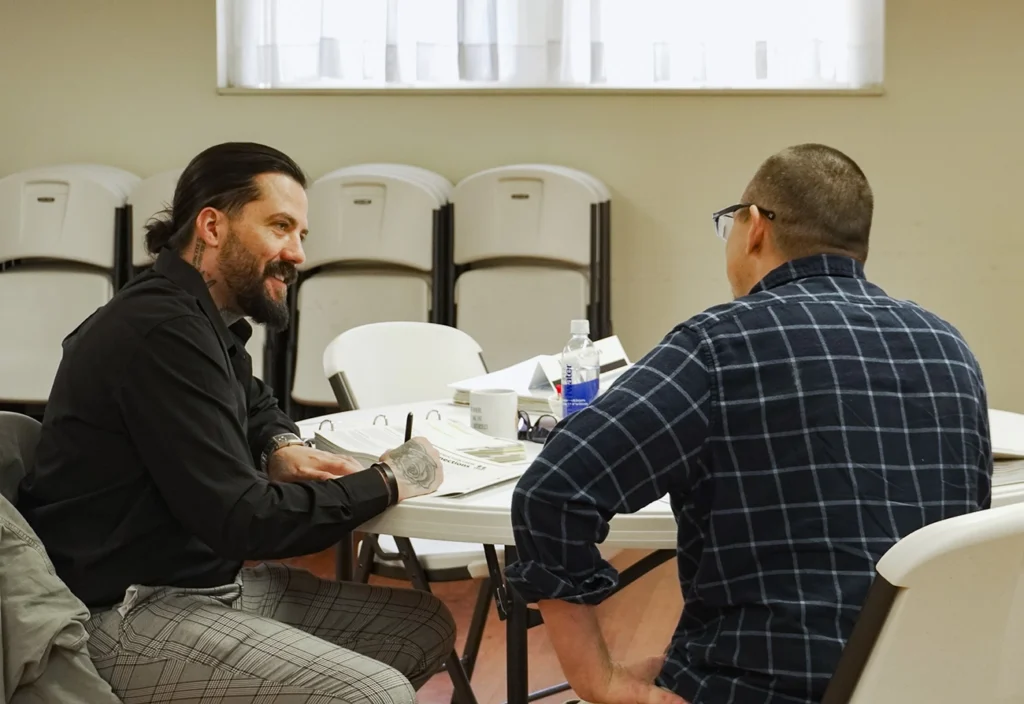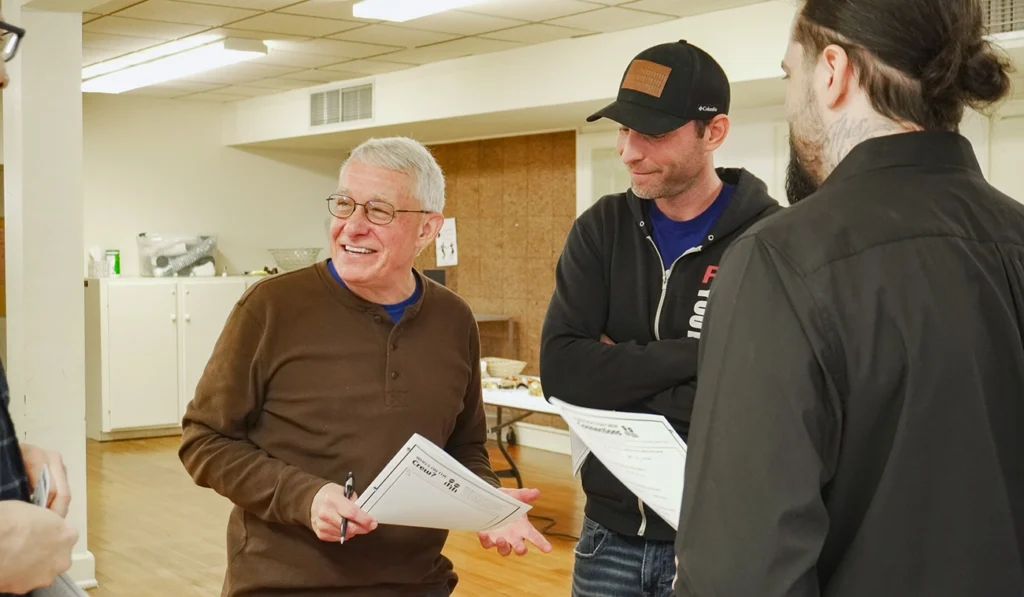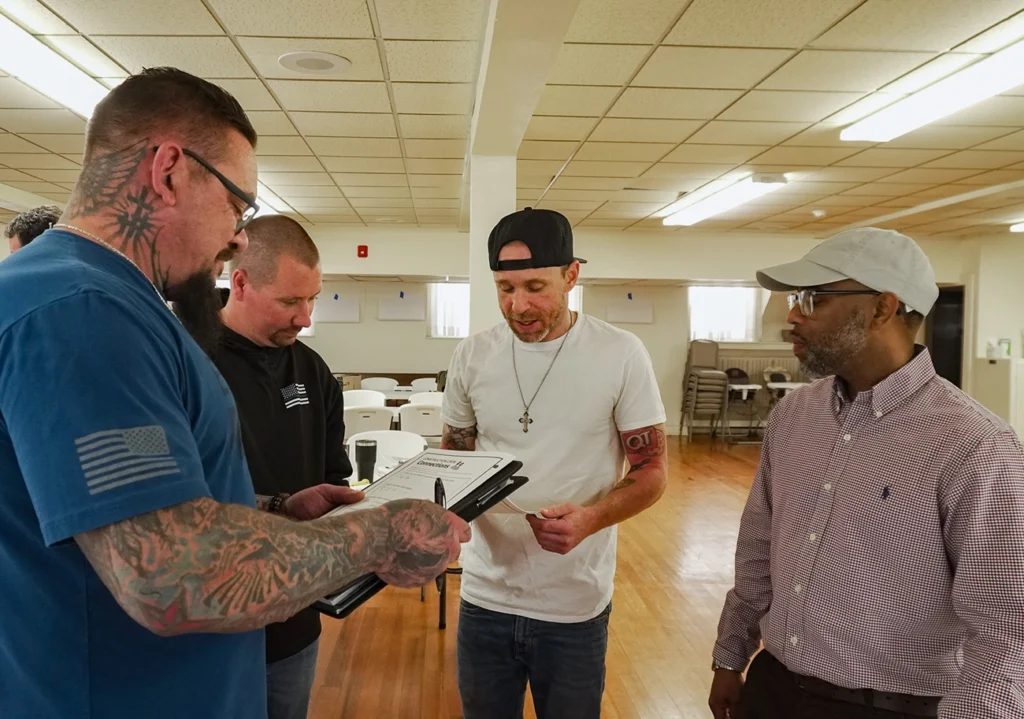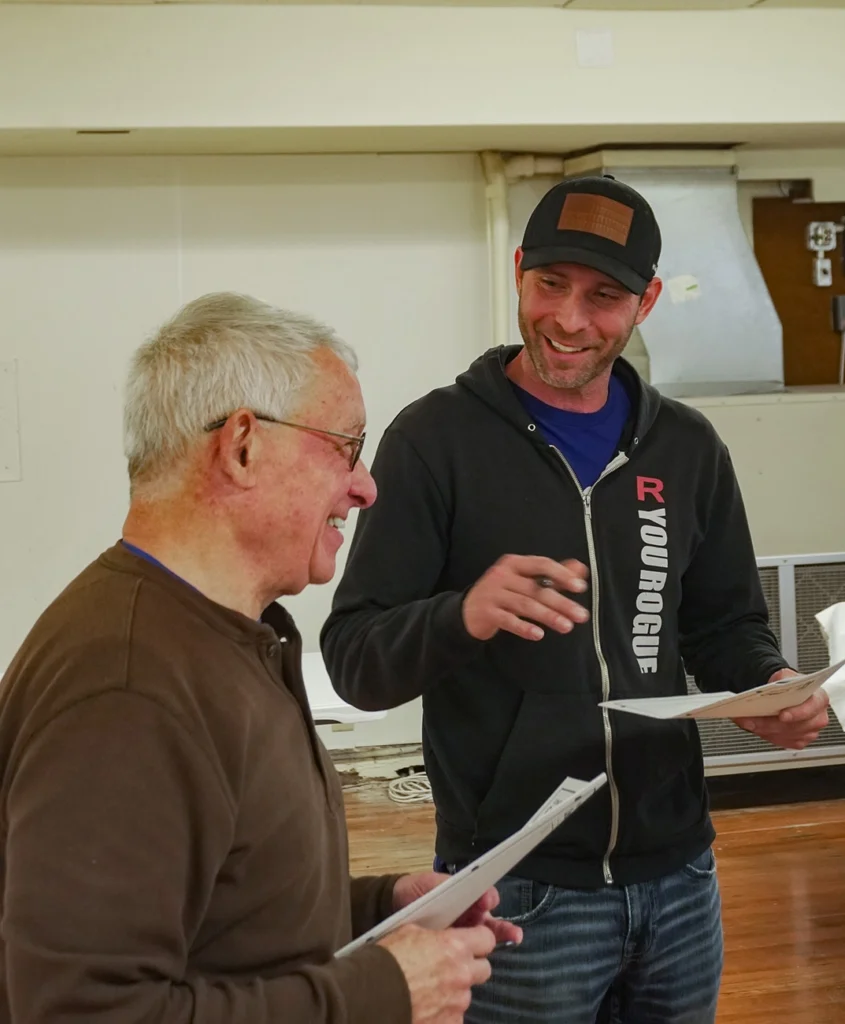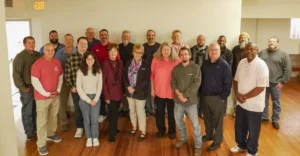Wow! More than three dozen father-focused leaders representing 15 Missouri communities joined Good Dads in Springfield, MO, to be trained to facilitate Good Dads 2.0 and Within My Reach, the two classes that serve dad participants in the New Pathways for Good Dads Program.
The cohort gathered April 23–25 at classroom space generously offered by the Downtown Church. And we had near record-breaking turnout. Forty existing facilitators and soon-to-be facilitators had opportunities to meet one another, exchange facilitation tips and get excited about the Good Dads vision to support kids and communities one dad at a time.
Among the groups represented included champions of recovery, faith leaders, Good Dads chapter leaders and organizations committed to end poverty.
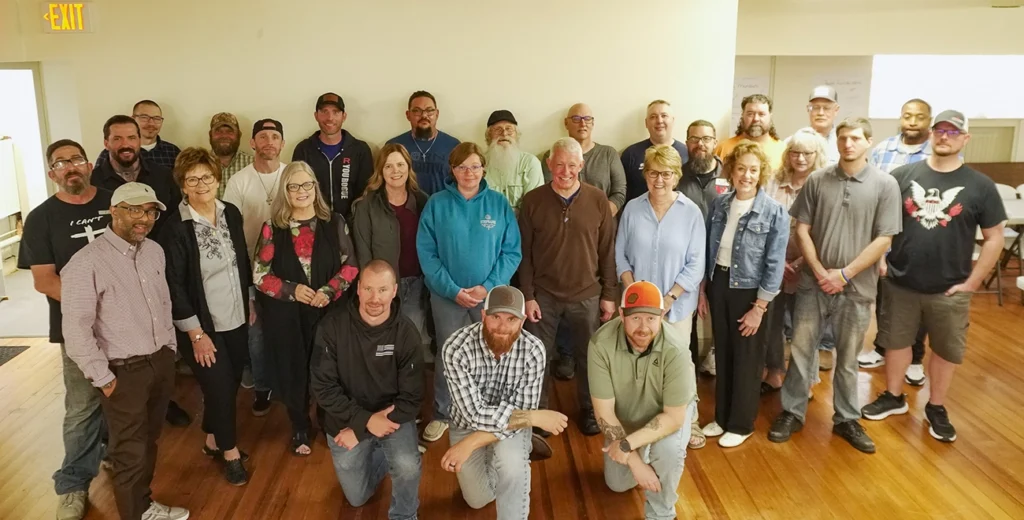
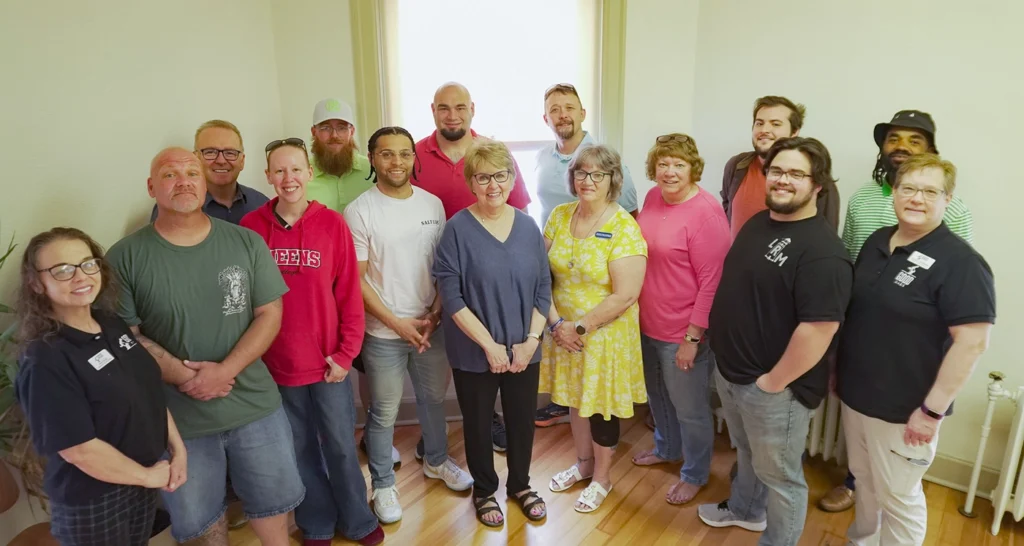
Participating communities
- Ava
- Cass County
- Chillicothe
- Columbia
- Hannibal
- Independence
- Kansas City
- McDonald County
- Nevada
- Rolla
- Springfield
- St. Joseph
- Stone County
- Texas County
- Troy
JB Togun and Cameron Schmitz, two attendees who travelled about three and a half hours from Chillicothe to attend Training Camp, agreed it is a vital resource. Both attended a previous Good Dads event to receive training for Good Dads 2.0—and have since brought back what they learned in the fatherhood skills course to facilitate classes for New Pathways participants in their community. Both men returned this spring to add Within My Reach to their facilitating portfolio.
Togun, who works with Abba House, a faith-focused men’s recovery home in Chillicothe, said he enjoyed participating in deep questions that encourage participants to look inward.
Likewise, Schmitz, director of Chillicothe’s Lighthouse Radio Ministries, said the course invites participants to confront and reflect on their own lives and past decisions, especially exploring the health of one’s relationships, romantic and otherwise.
“One thing I didn’t expect was that there’d be such a conversational approach to the training,” Schmitz said, pointing to the directness of the course material and practical applications for each lesson. “As a dad, your goal (ought to be) to have healthy children who can function well in society. But if you feed into a system of dysfunction, your children might not be able to cope with stress well and slide into unhealthy decisions.”
In Schmitz’s view, Good Dads classes are a means to give fathers the tools they need to reach their goals.
Togun quickly agreed.
“That’s what I was going to say,” he said with a laugh, high-fiving Schmitz. Togun also added that he sees a multitude of risks that come with not taking your role as a dad seriously.
“Bringing up a child in an unhealthy environment might mean they have a lower chance of success—like, if your relationship is an abusive one, that might mean that’s (your child’s) only exposure to what a relationship looks like,” Togun said.
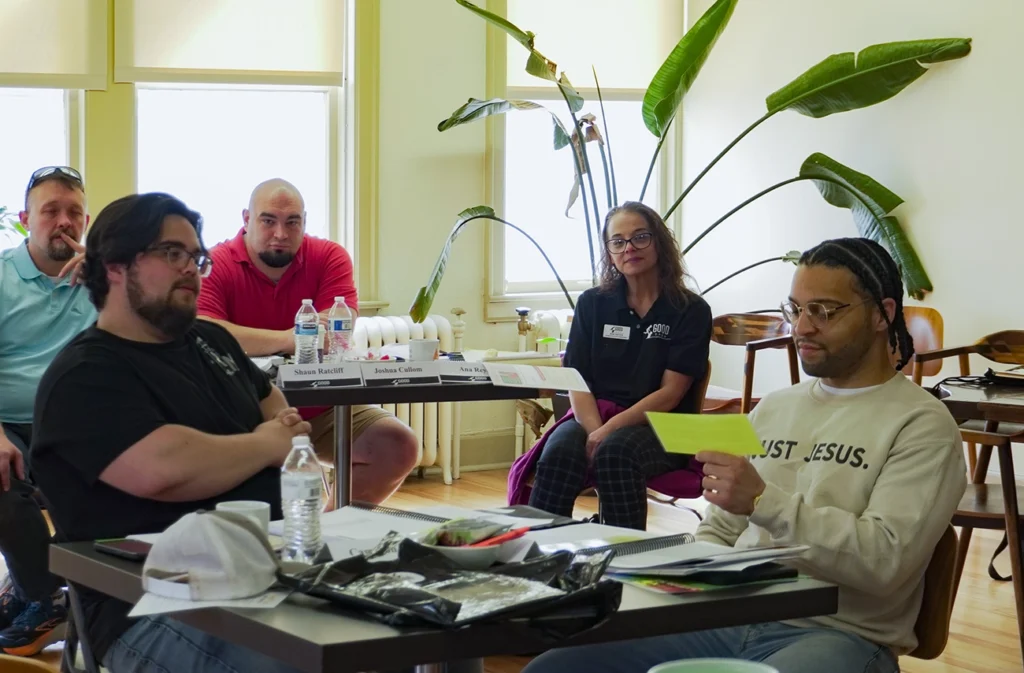
The impact of a Good Dads class in towns like Chillicothe? Dads have the chance to realize that change is possible.
“Most of our (New Pathways for Good Dads) participants are in relationships, but (the classes are) giving the opportunity to practice something different from what they were brought up in,” Schmitz said.
Togun called it a “domino effect” – citing the ripple effects that he’s observed as a facilitator at Abba House.
Even while training to lead a class, facilitators are looking inward and resonating deeply with the material. In turn, facilitators bring back what they learned and deliver the information to at-risk dads in the community. Togun’s hope, he said, is that the dads in his classes will feel inspired to take what they learned in Good Dads classes and apply it to their children. Then those children might be inspired to pass what they learned onto their own children.
“We’re really talking about generations being changed,” Togun said. That’s why he’s so enthusiastic about Abba House’s collaboration with Good Dads. He primarily serves men with histories of incarceration of addition, so he considers Good Dads a vital component of the program.
Schmitz, for his part, cited his career as an important factor in his drive to facilitate Good Dads classes. Formerly employed in the insurance industry, he said he never connected with it. But now, “I can make relationships free of agenda,” he said. “I’m not trying to sell anyone anything; I’m making relationships, and I’m encouraging and equipping (dads with what they need) to have a fulfilling life.”
For Schmitz, being a facilitator is about far more than just teaching material. He sees it as a chance to lead by example— “That creates results,” he said. “The best way to communicate a message is to believe in it and live it.”
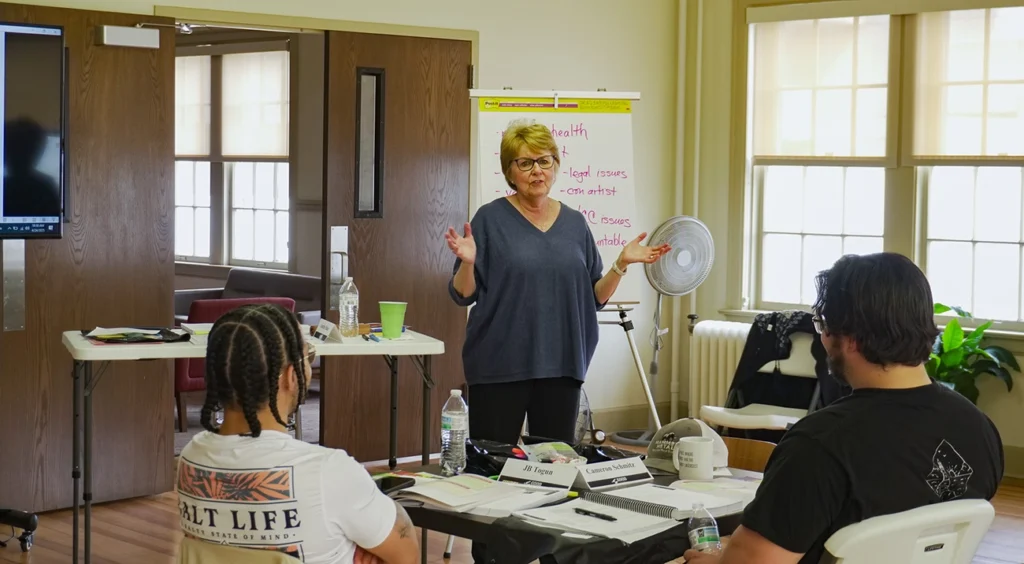
About Our Facilitators
Good Dads facilitators do not need to be dads themselves, although it certainly helps. Our best facilitators are passionate about supporting fathers and children. They recognize that, for dads to succeed, they need mentorship and a network of others to rely on.
Anyone who wishes to facilitate a Good Dads course is required to attend training sessions before leading their first class. They typically co-facilitate with one or two others to make sure the class runs smoothly.
For more information about facilitating, check out our Class Facilitators & Mentors Brochure.
Our Gratitude to…
- The Downtown Church for generously hosting classroom space
- Good Dads master facilitators Sally Herman, Janice Reynolds and Marlon Graves and Mike Weist
- Daylon Tillman, child support specialist
- Liberty Press, for doing a fantastic job with our new Good Dads 2.0 facilitator guides
- The staff at Prep for getting us our Within My Reach materials so quickly
